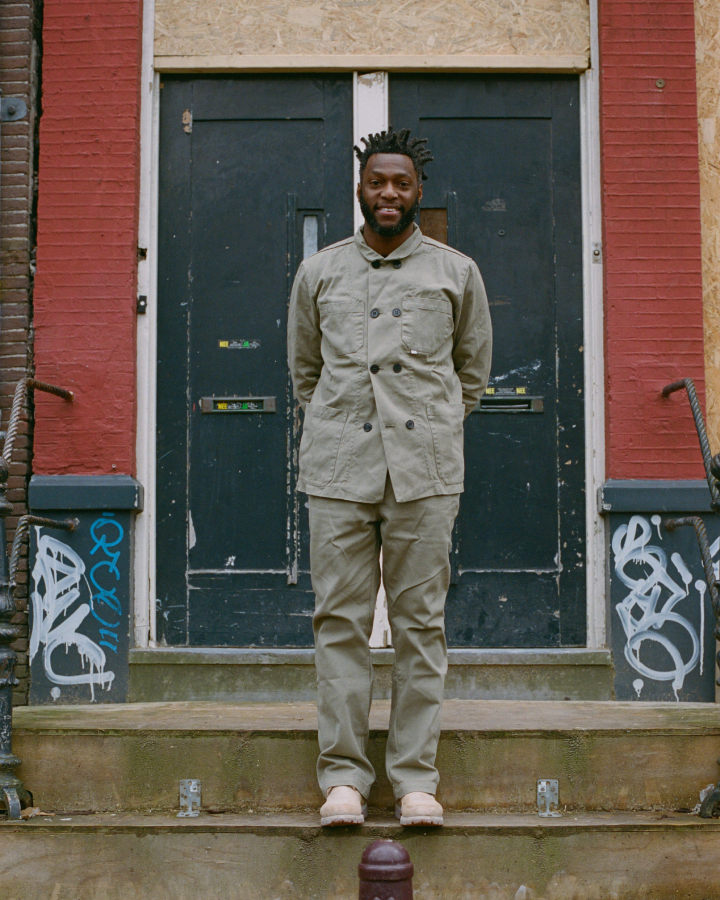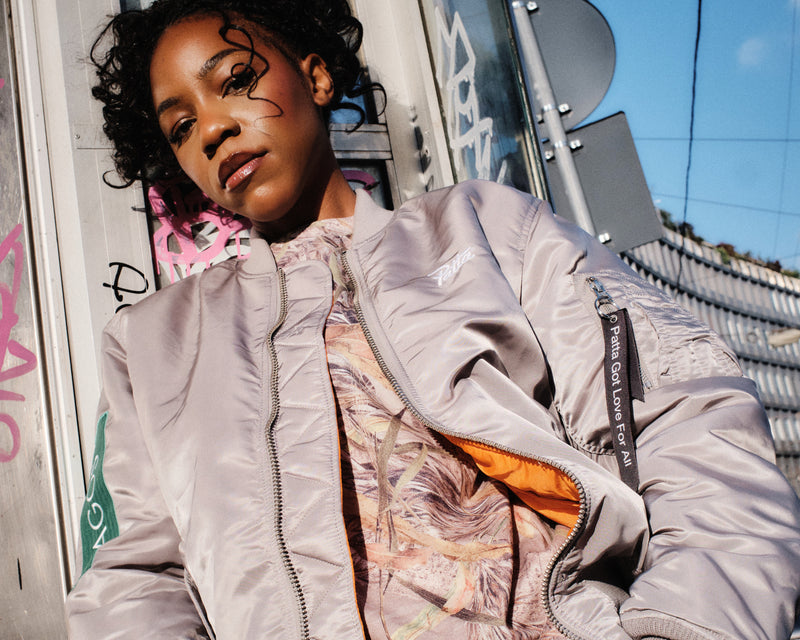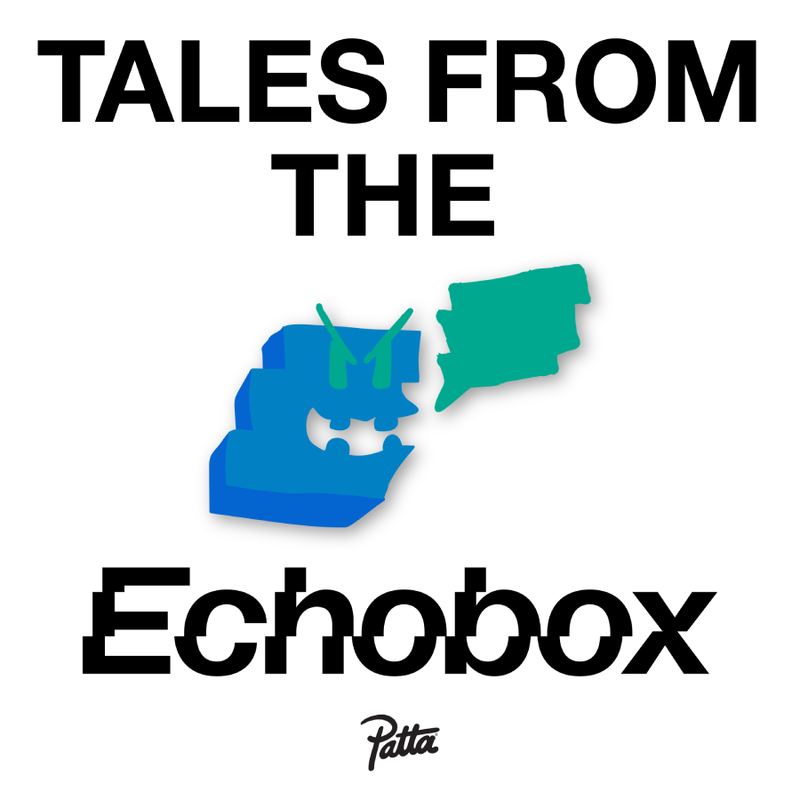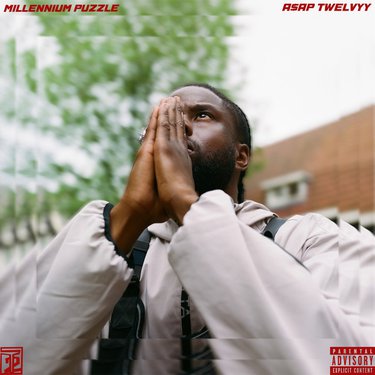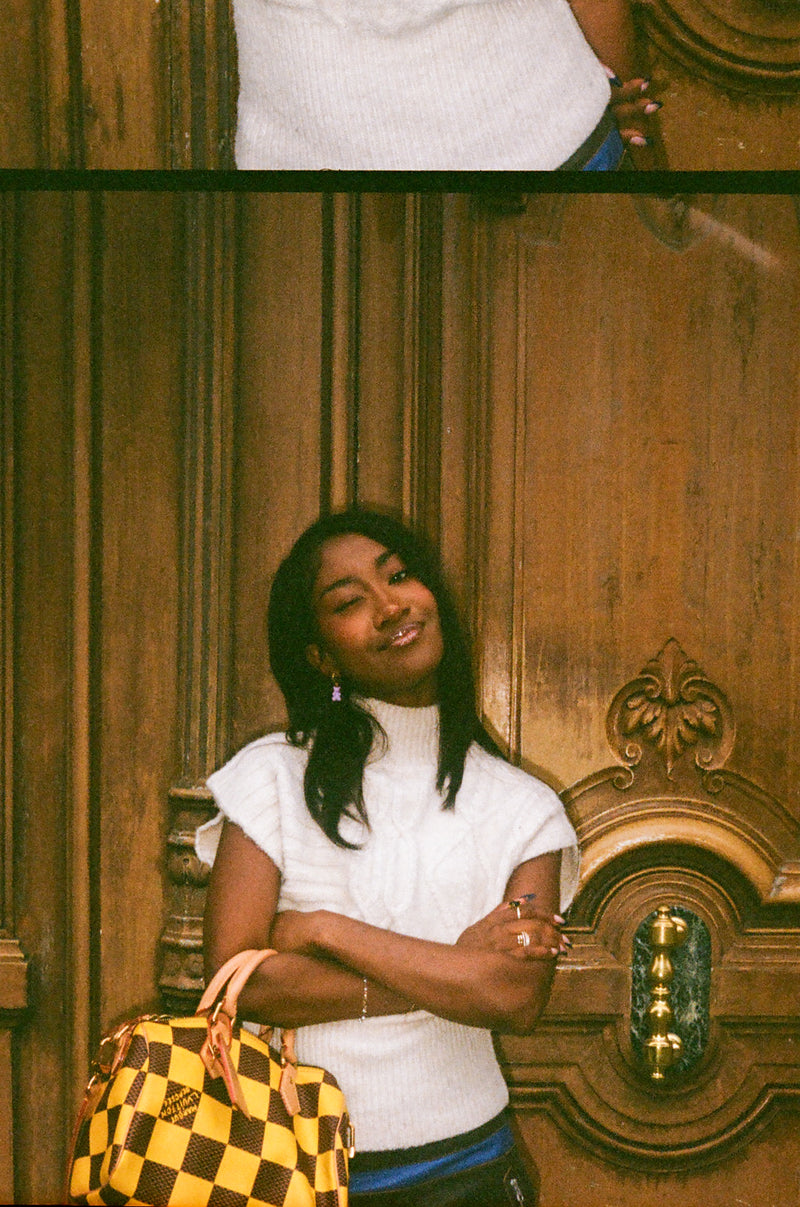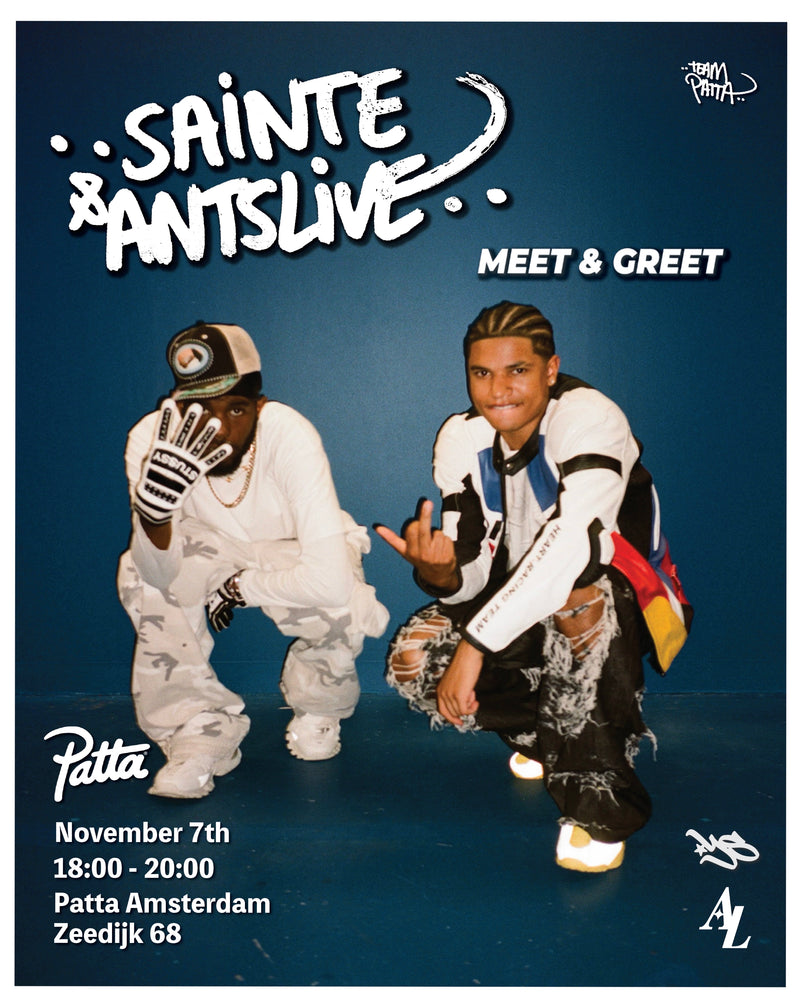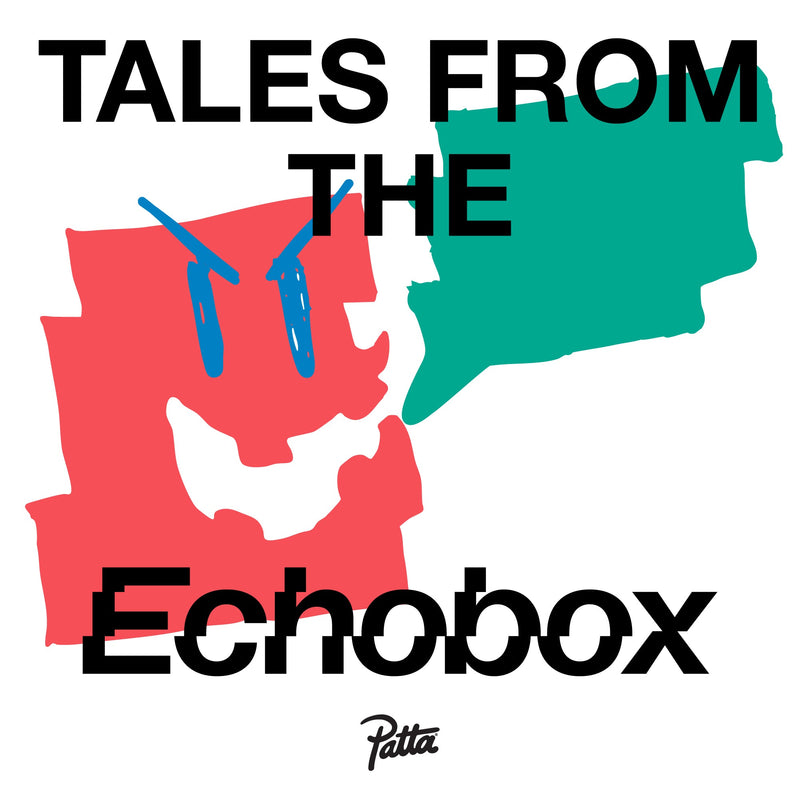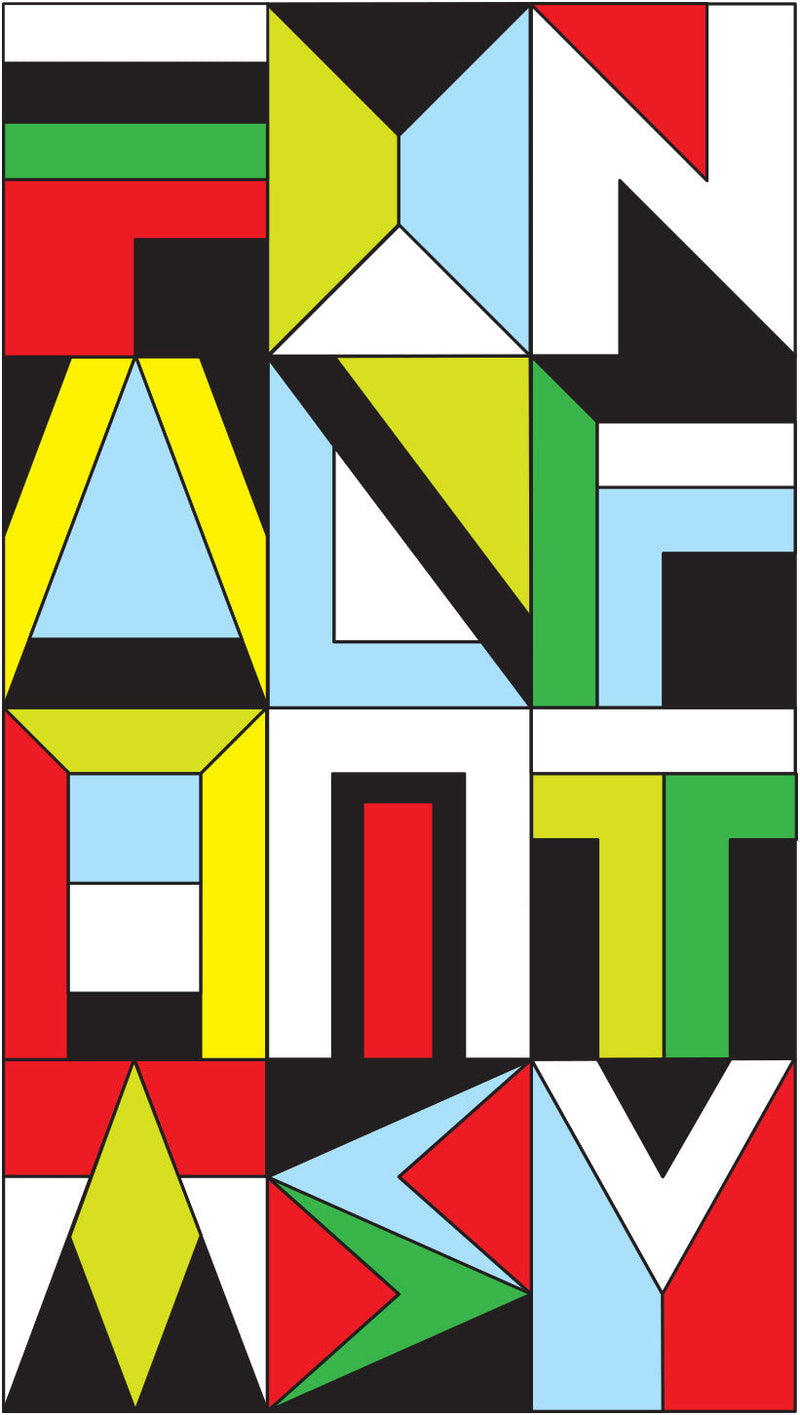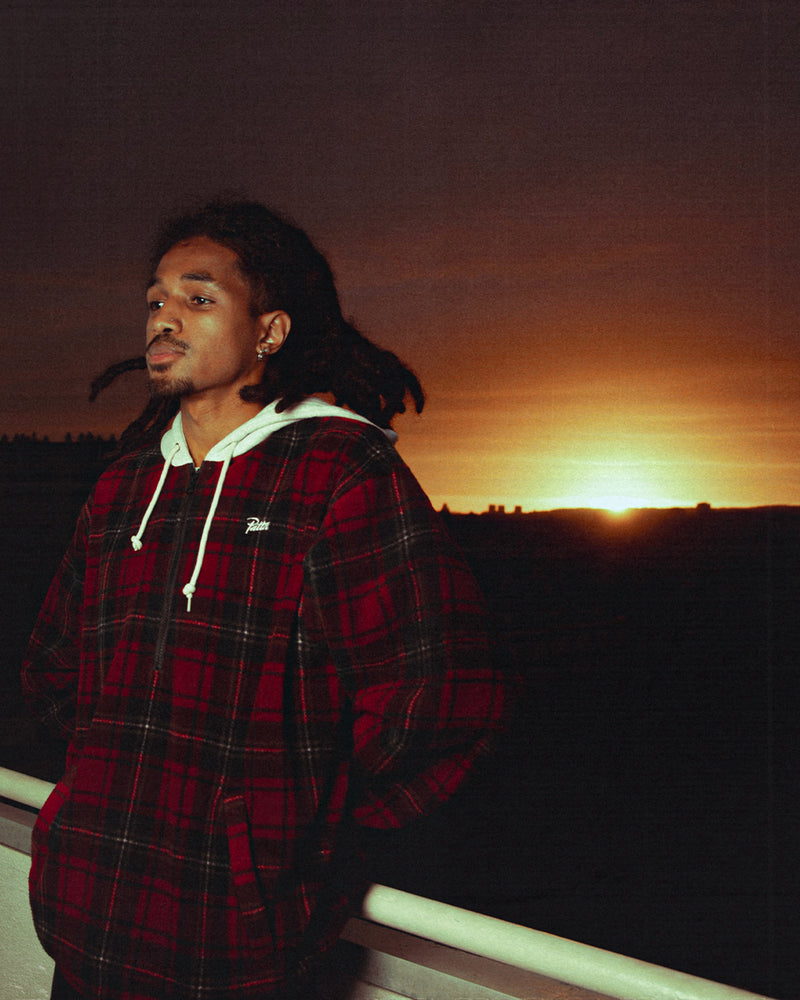
Get Familiar: Ladi Kazeem Of The Vault Mcr
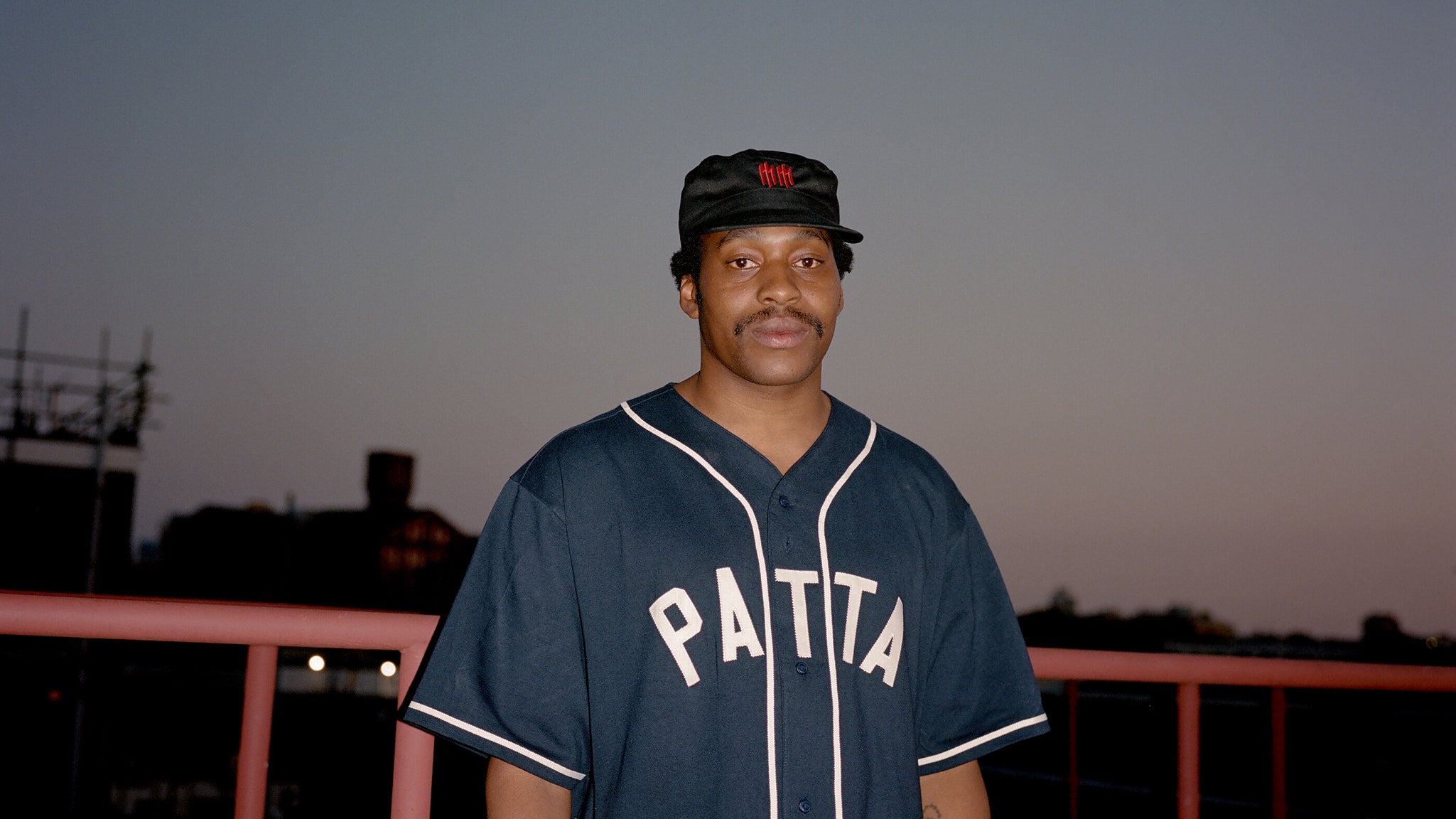
We recently had a chat with Ladi Kazeem - the owner of The Vault MCR - about childhood influences, how he began his venture as a dead stock and vintage specialist, and his goal of opening a small shop in the North-East of England. Kazeem, currently based in London, welcomed us into his studio in East London to capture him in his work space, surrounded by hundreds of t-shirts, jackets and poster merchandise. Read on, get familiar.
Where did you grow up and how did that influence your life?
I’m originally from Saltburn-By-The-Sea, a bohemian beach town in the North-East of England and a stone’s throw away from Middlesbrough. An area that was once thriving and one of the UK’s strongholds for not only steel but industry in general, overtime especially in recent years the soul of the area’s been taken away and now the North is almost stagnant and lifeless.
Saltburn on the other hand is one of the bright lights in the area alongside other coastal towns such as Whitby and Scarborough with a deep routed surf culture and an extremely welcoming community vibe. My adopted mother had lived and worked in the area her whole life and that’s all she knew. Community was everything for her and it rubbed off on me somewhat.
 Who were your main influences growing up?
Who were your main influences growing up?
My only influence was my adopted mother. To keep it short, I was fostered at 7 months old by her and she moved me to the North-East, gave me the chance of life and upbringing/education that so many people don’t get and for that I’m thankful to her.
She fostered African children in the 80’s & 90’s and I was the only person that she adopted because I was the only one who wouldn’t leave. I always draw inspiration from her and the things she must have gone through all those years ago. For those who don’t know, the North-East is definitely the least multicultural place to live in The UK and I was literally the only Black person in my area. She passed away when I was 17 and my world fell apart, it took me a while to get back on track afterwards. I suppose, I’m here today because of how big an influence she’s had on me and its as if I owed it to her not to fail or fall at the first hurdle.
How did your career start and where?
I started my vintage journey...well let’s say my buying and selling journey when I was in school. I remember vividly buying Live Strong wristbands on eBay and reselling them before I even knew what reselling was. It’s interesting when I think about it, I could even go back further to when Pokemon trading cards were huge in the UK and I was going to places like Skegness and Blackpool on family excursions and picking up the Japanese bootlegs cards that nobody in my area had seen and I’d sell them on the playground to the highest bidder. Things started early for me. Fast forward to 10 years now, I’m living in London with no job or life prospects and buying selling had become a source of survival and almost a routine. I’d wake up, hit the thrift stores and car-boots and resell everything the same day. I’d often walk from New Cross to Notting Hill and take a bag of clothes to ‘Retro Man’ (Buy, Trade and Sell Store) and continued the same process for nearly 4 years. Back then it wasn’t like today where you can utilise your media platforms to sell your wears and thrift finds. Nobody had Paypal and a very few people were using eBay so there was that lack of trust, meaning I’d have to put in the leg work and visit people personally with a sack on my back, a little bit like Dick Whittington.
What’s your favourite parts about being a vintage dealer?
I can travel the world and essentially buy vintage. I’ve made this my job, but obviously there’s more benefits like living in London, having a studio, doing pop-ups and being able to give people work and also to give back to my hometown and to fund a food bank. I’m able to be a little bit more free spirited and it’s something I wouldn’t be able to do if I was working a 9-5.
 What is the hardest part about being a vintage dealer and what part is the most rewarding?
What is the hardest part about being a vintage dealer and what part is the most rewarding?
The hardest part hands down must be finding the rarest and most sought after t-shirts at the right price. Especially now, with the market being so saturated and also with so many dealers and collectors scrambling for the same items. The main principles of buying and selling have always been: ‘Buy for less, sell for more and continue that process.’ What’s happening with the ever growing t-shirt market right now, is that the prices are being ran up globally to the point where average t-shirts are no longer affordable. Sometimes, you’re forced to buy good t-shirts with no chance of making a clear profit which is tough but having said that, there are ways to negate all of the above but it just involves travelling further and searching harder and longer than everyone else. So I’d say the most rewarding part of being a dealer is when you’ve been on the road for a week and found nothing, and then out of nowhere you eventually find a spot in the middle of nowhere full of deadstock pearls for peanuts.
What’s the biggest highlight of your career so far?
My pop up on Melrose Avenue on the corner of Fairfax, opposite the High School is my biggest highlight. I remember my first thrift trip to California and literally having no money but still finding unbelievable pieces. On my last full day of walking around for 3 hours alone with no map and eventually ending up on Fairfax, home to brands like Supreme, The Hundreds, Diamond Supply and then walking up and ending up on Melrose and just discovering all the vintage shops. This has made my trip, so I never imagined that 6-7 years later I’d be able to host a pop-up in one of the stores and have people turning up 2 hours early to queue up and see what I’ve brought across the pond.
 How did the name “The Vault” come about?
How did the name “The Vault” come about?
I occupied a basement of a gift shop called Incognito in the Manchester NQ in 2015 and there was a cast iron 10x10 bank vault inside, hence why the name “The Vault” and that became the centre piece of my space at the time. I’ve become friendly with the owner through my then landlord and he offered me the full space for free in exchange of cleaning it and helping out here and there. So that was amazing as it meant I had physical space to sell from without the worry of overheads in a prime location of Manchester. I ended up leaving the original vault in 2017 when the owner decided like many independent businesses in the area to change the space to a bar/restaurant.
What’s the biggest problem you’ve had to overcome?
Again, probably what I eluded to above when my mother died. I found myself in a situation where I was effectively homeless, penniless and just out of school. I decided to leave college to work which in hindsight wasn’t the best idea because Middlesbrough isn’t the most progressive area and there wasn’t much work so I found myself in place I presume a lot of people find themselves. Jobless, homeless, living sofa to sofa with no clear path out of the situation I found myself in. In the end it came down to realising nobody is going to help me if I can’t help myself, so moving to London and buying and selling day to day saved me because I was working as hard as anyone would in a 9-5. If you don’t find anything, you don’t eat or pay rent it’s that simple. My mentality changed and I started to feel less sorry for myself and came to terms with the situation I was in and I suppose ultimately grew to where I am today.
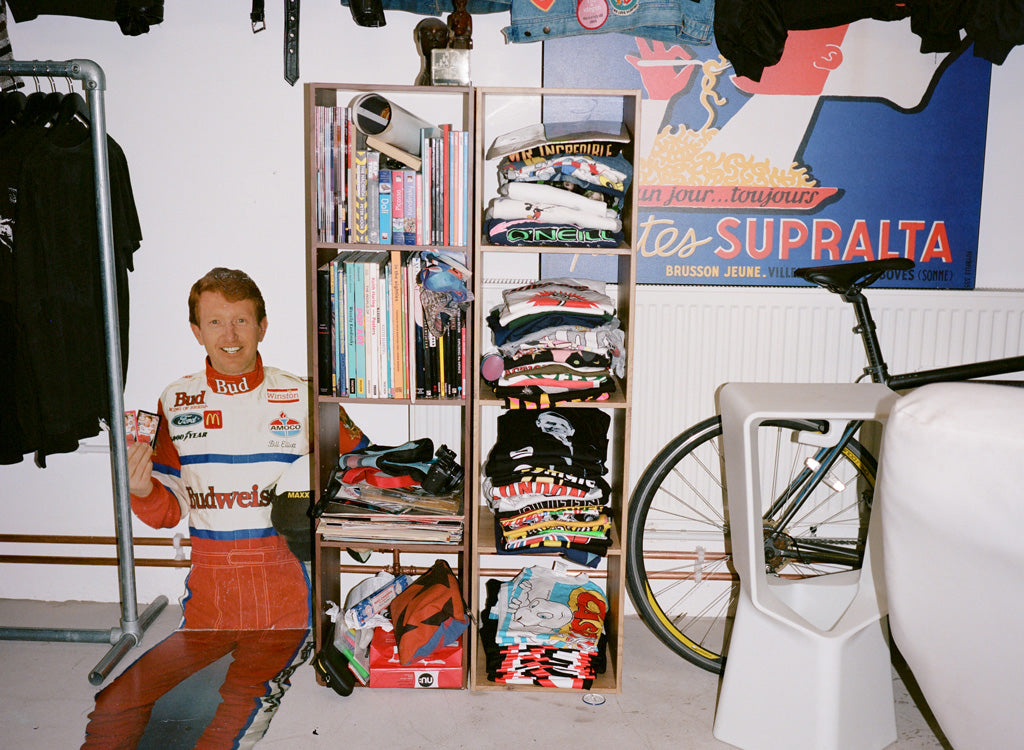 What motivates you on a daily basis?
What motivates you on a daily basis?
Personal progression is my motivation, progression I can see and keep track of. 5 years ago, I was in a basement in Manchester selling a handful of t-shirts per day and now I’m in a studio in East London wholesaling worldwide, travelling, sourcing and I still don’t even feel like life has touched surface so that’s my motivation.
What advice would you give to somebody starting up in your field?
Be original.
What is your dream project/or goal?
My next goal is to move back to the North and build a home where I can work and live away from the rat race in the city. Once that’s all sorted, go back on the road and continue where I left off before COVID-19 and go back to doing pop ups globally. Japan next and then places like New York and Sydney. I’d also love to open a small shop in my hometown where nobody in the town would give a shit but people would travel from miles around to come buy some of the rarest pieces I’d unearthed.
If you could change one thing about the industry, what would it be and why?
I’d love to abolish the old head mentality that’s attached to vintage, the same mentality that sometimes holds vintage back. For example in some countries if vintage stores know that you’re a collector or seller they won’t sell to you because they don’t want anyone profiting from what they’re selling. Which makes zero sense because they’re doing exactly the same thing when they find their stock, so that’s one thing I’d get rid of. Some of my biggest clients are Japanese shop owners who are buying to resell so its like a food chain and everyone can eat if the price is right at both ends.
 How would you best describe your music taste?
How would you best describe your music taste?
I listen to a lot of Surf and Alt Rock music at the moment. Bands like Balue and Oso Oso, but I’ll give anything a go. That’s the good thing about dealing band merchandise, I have to listen to all types of music at any given time and I’m always discovering new artists and sounds.
Is there any artists that you listen to regularly?
I used to listen to Bibio quite regularly. I’m also a big fan of artists like Common, Pharoahe Monch, Talib Kweli and Mos Def. I listen to a lot Dilla for background music when I’m in the showroom.
How would you best describe your personal style?
I don’t even know anymore, casual I guess...I don’t even own a mirror anymore so half of the time I don’t know what I look like when I put outfits together. In fact, my personal style is relaxed. I remember reading a book from 2006 called Tokyo Street style like 10 years ago and it blew my mind at how progressive fashion was in Asia all those years ago. Majority of the time they were wearing plaid shirts and khaki’s but it was just the way everything sat that made the outfit so I kind of followed that methodology.
 How did you get linked with Patta?
How did you get linked with Patta?
I worked in retail with the current London store manager Andre back in 2012 for a few years when I was first living in London. He was the only person I kept in touch with when I left the role and we are still good friends to this day. I actually remember when he first started at Patta and he was working over in Amsterdam and I’d be over there thrifting and we would link up on the odd occasion. Fast forward to now and I’m close to pretty much everyone at the store past and present and represent when I can.
Follow Ladi Kazeem and The Vault on Instagram.
